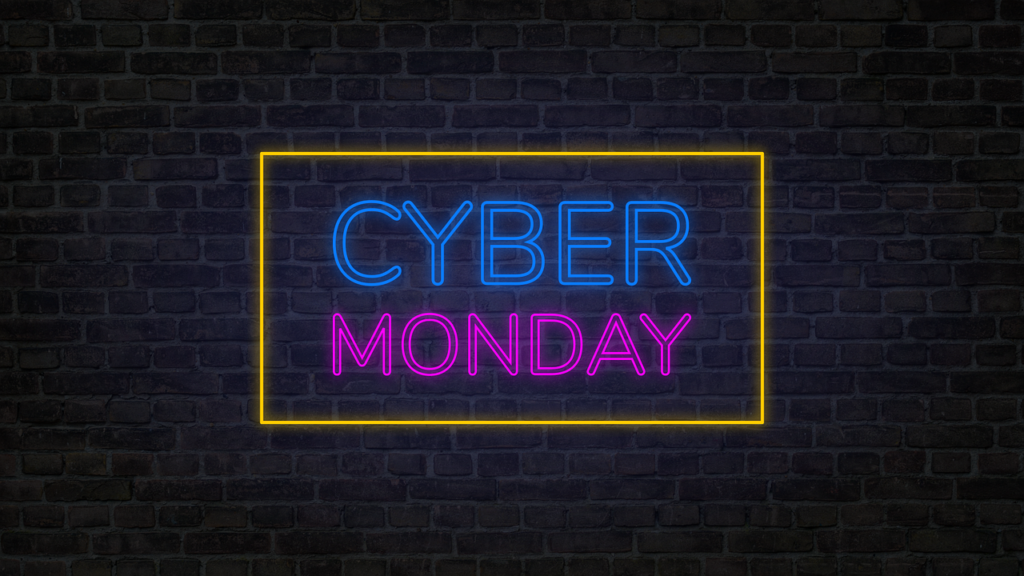Event marketing is a powerful tool that businesses can use to engage with their target audience and create memorable experiences. Whether it’s a product launch, trade show, or experiential event, event marketing allows you to showcase your brand and connect with consumers on a deeper level. In this article, we will explore what event marketing is all about and discuss how you can leverage it to enhance your overall marketing strategy. So get ready to discover the endless possibilities that event marketing offers and unlock the potential to boost your brand’s visibility and growth. Event marketing refers to the strategic use of live events to promote and market a brand, product, or service. It involves creating experiences that engage and connect with the target audience, allowing them to interact and form a meaningful relationship with the brand. By utilizing events, companies can increase brand visibility, directly engage with their target audience, and create networking opportunities. In this comprehensive article, we will explore various aspects of event marketing, from its definition and types to the planning and execution process, as well as the benefits, strategies, and measurement of success. So, let’s dive in and understand the world of event marketing.

Definition of Event Marketing
Event marketing is a form of experiential marketing that aims to create memorable experiences for the target audience through live events. These events can range from trade shows and conferences to product launches and charity galas. By engaging attendees on a personal level, event marketing allows brands to showcase their offerings, build brand awareness, and establish strong connections with potential customers. It goes beyond traditional advertising by providing an interactive and immersive environment where people can directly experience the brand and its values.
Types of Event Marketing
Event marketing can take various forms, depending on the objectives and target audience. Some common types include:
-
Trade shows and exhibitions: These events bring together companies from a specific industry to showcase their products and services. They provide an opportunity for businesses to network, generate leads, and stay updated on the latest trends.
-
Conferences and seminars: These events focus on delivering valuable educational content and fostering knowledge-sharing among professionals in a particular field. They allow attendees to learn from industry experts, participate in workshops, and network with like-minded individuals.
-
Product launches: These events are aimed at introducing a new product or service to the market. They create excitement and anticipation among potential customers and can generate media coverage, as well as generate awareness and interest in the brand.
-
Charity galas and fundraising events: These events combine social good with marketing efforts. By partnering with nonprofit organizations and supporting a cause, companies can enhance their brand image, engage with socially conscious consumers, and give back to the community.
Importance of Event Marketing
Event marketing plays a crucial role in a brand’s overall marketing strategy. Here are some key reasons why it is important and how it can benefit businesses:
Increased brand visibility
Events provide an opportunity for brands to stand out and increase their visibility. By participating in industry-specific events or hosting their own, companies can showcase their offerings to a targeted audience. This exposure can help in creating brand awareness and generating leads, as well as positioning the brand as a thought leader in its field.
Direct engagement with the target audience
Event marketing allows brands to engage with their target audience on a personal level. Unlike traditional marketing channels, events provide an opportunity for face-to-face interactions and meaningful conversations. This direct engagement helps in building trust, establishing emotional connections, and creating a positive brand perception among attendees.
Opportunity for networking and partnerships
Events bring together professionals and industry leaders from various backgrounds and provide networking opportunities. By attending or hosting events, companies can connect with potential customers, suppliers, partners, and influencers. These connections can lead to valuable partnerships, collaborations, and business opportunities that can significantly impact the success of the brand.
Now that we understand the importance of event marketing, let’s explore the planning and execution process to ensure a successful event.
Planning and Execution of Event Marketing
To leverage the power of event marketing, it is essential to have a well-thought-out plan and efficient execution. Here are some key steps involved in the planning and execution process:
Identifying goals and objectives
The first step in planning an event marketing campaign is to clearly define your goals and objectives. What do you want to achieve through the event? Is it to generate leads, increase brand awareness, launch a new product, or strengthen customer relationships? Identifying these goals will guide your event planning and ensure that you stay focused on the desired outcomes.
Target audience and demographics
Understanding your target audience is crucial for planning a successful event. Conduct market research to identify the demographics, preferences, and interests of your audience. This information will help you tailor your event activities, messaging, and overall experience to resonate with your target audience and maximize engagement.
Budgeting and resource allocation
Event marketing can involve significant costs, so it is essential to develop a budget and allocate resources accordingly. Consider expenses such as venue rental, speaker fees, marketing materials, staff, and logistics. Allocate resources based on the importance and impact of each element on achieving your event goals.
Now that you have a solid plan in place, the next step is to choose the right event that aligns with your objectives and target audience.

Choosing the Right Event
Selecting the right event is crucial for the success of your event marketing campaign. Here are some factors to consider when choosing an event:
Researching industry-specific events
Start by researching industry-specific events that attract your target audience. Look for events that align with your brand values, product/service offerings, and overall marketing strategy. By participating in events that are relevant to your industry, you can ensure that you are reaching the right audience and maximizing your return on investment.
Evaluating event attendees and sponsors
Take a closer look at the attendees and sponsors of the events you are considering. Evaluate the demographics, interests, and buying power of the attendees to determine if they align with your target audience. Additionally, assess the reputation and credibility of the event sponsors to ensure that they enhance the overall brand perception associated with the event.
Considering event size and location
Consider the size and location of the event when making your decision. Larger events may attract a broader audience but can also mean more competition. On the other hand, smaller events can provide a more intimate and targeted environment for engaging with attendees. Similarly, consider the geographical location of the event and how it aligns with your target market. A local event may be more suitable for targeting a specific region, while a national or international event can help you reach a wider audience.
Now that you have chosen the right event, it’s time to create an effective event marketing strategy.
Creating an Event Marketing Strategy
A well-executed event marketing strategy can make all the difference in the success of your event. Here are some crucial elements to consider when creating your strategy:
Defining key messaging and value proposition
Identify the key messages you want to communicate to your target audience and ensure that they align with your overall brand messaging. Clearly define your value proposition and unique selling points to differentiate yourself from competitors. Communicate these messages consistently throughout your event marketing materials, both online and offline.
Determining event activities and initiatives
Plan engaging activities and initiatives that will attract and captivate attendees during the event. Consider incorporating interactive experiences, live demonstrations, workshops, or contests to create memorable moments and showcase your brand’s offerings. Tailor these activities to align with your event goals and the preferences of your target audience.
Developing a timeline and action plan
Create a detailed timeline and action plan to ensure that all tasks are completed in a timely manner. Determine the deadlines for key milestones, such as venue booking, marketing campaigns, material production, and logistics. Assign responsibilities to team members and establish clear communication channels to ensure smooth coordination and execution of the event.
Once your strategy is in place, it’s time to promote your event and generate buzz.

Promoting Your Event
Promoting your event effectively is crucial for driving attendance and maximizing its impact. Here are some strategies to consider:
Utilizing social media and digital marketing
Harness the power of social media and digital marketing to create buzz around your event. Use platforms like Facebook, Twitter, and Instagram to share event updates, behind-the-scenes content, and engage with your audience. Leverage paid advertising, email marketing, and search engine optimization (SEO) strategies to reach a wider audience and drive event registrations.
Collaborating with influencers and industry experts
Partner with influencers and industry experts who align with your brand values and target audience. By having them promote your event, either through guest appearances, influencer marketing, or content collaborations, you can tap into their existing audience and enhance the credibility and reach of your event.
Email marketing and traditional advertising
Utilize email marketing to directly reach out to your target audience and encourage event registrations. Craft compelling email campaigns that highlight the value of attending your event and provide clear calls-to-action. Additionally, consider traditional advertising methods such as print ads, radio spots, or billboards to reach audiences who may not be active on digital platforms.
Now that your event is underway, let’s explore how to effectively manage it on-site.
On-Site Event Management
On-site event management is crucial to creating a positive experience for attendees and achieving your event goals. Here are some key elements to consider:
Setting up a visually appealing booth or display
Create a visually appealing and engaging booth or display that reflects your brand identity and draws attendees in. Use attractive signage, branding materials, and interactive elements to capture their attention and entice them to learn more about your offerings. Ensure that your booth is well-organized, easily accessible, and reflects the overall theme or objectives of the event.
Engaging attendees through interactive activities
Create interactive activities or experiences that actively engage attendees and encourage them to interact with your brand. This could include product demonstrations, games, contests, or hands-on workshops. By providing valuable and enjoyable experiences, you can leave a lasting impression and increase the likelihood of attendees becoming loyal customers or advocates for your brand.
Capturing leads and collecting data
Leverage the event as an opportunity to capture leads and collect valuable data. Set up systems to collect attendee information, such as email addresses or contact details, either through lead capture forms or digital solutions like QR codes. This information can be used for follow-up campaigns, nurturing potential customers, and evaluating the success of your event.
Now that your event has concluded, it’s time to measure its success and calculate the return on investment.

Measuring Success and ROI
Measuring the success and return on investment (ROI) of your event is crucial for evaluating its effectiveness and informing future event marketing strategies. Here are some key metrics to consider:
Tracking event attendance and participant feedback
Measure event attendance to determine the overall reach and success of your event. Additionally, collect feedback from attendees through surveys or post-event evaluations to gauge their satisfaction, gather suggestions for improvement, and identify areas of success. Analyze this feedback to refine your event marketing strategies and improve future events.
Monitoring brand mentions and social media engagement
Track brand mentions and social media engagement related to your event before, during, and after its conclusion. Monitor hashtags, mentions, comments, and shares to gauge the overall sentiment and level of engagement among attendees and online participants. This data can provide insights into the reach, impact, and effectiveness of your event marketing efforts.
Calculating return on investment (ROI)
Calculate the ROI of your event by comparing the expenses incurred with the revenue generated or the value received. Consider both direct ROI, such as sales or leads generated at the event, as well as indirect ROI, including increased brand awareness, website traffic, or partnerships formed. This analysis will help you determine the effectiveness of your event marketing strategy and guide future investment in similar initiatives.
Now that you have measured the success of your event, it’s important to maintain post-event momentum and leverage the outcomes for ongoing marketing efforts.
Maintaining Post-Event Momentum
It’s important to capitalize on the momentum gained from your event and continue building brand awareness and engagement. Here are some strategies to maintain post-event momentum:
Follow-up with leads and potential clients
Follow up with leads and potential clients promptly after the event to continue nurturing relationships and driving conversions. Send personalized emails or make phone calls to thank attendees for their participation, provide additional information about your offerings, or offer special promotions or discounts. By staying engaged with potential customers, you increase the chances of converting them into loyal clients.
Leveraging event content for ongoing marketing
Repurpose event content, such as photos, videos, and testimonials, for ongoing marketing efforts. Share these assets on your website, social media platforms, email newsletters, or blog posts to remind attendees of their positive experiences and attract new audiences. By leveraging event content, you can extend the lifespan of your event and continue to generate interest and engagement long after its conclusion.
Engaging event attendees through post-event activities
Engage with event attendees through post-event activities that provide value and maintain connections. This could include hosting webinars, organizing networking events or workshops, or sharing relevant industry updates. By continuing to interact with attendees, you can foster a community around your brand and establish long-term relationships that go beyond the initial event experience.
To further illustrate the effectiveness of event marketing, let’s explore some case studies of successful event marketing campaigns.

Case Studies of Successful Event Marketing
Company A’s product launch event
Company A, a leading technology company, successfully launched a new product through a grand event that generated significant buzz and media coverage. By inviting key industry influencers, analysts, and potential customers, Company A created an atmosphere of exclusivity and excitement. The event showcased the product’s innovative features through live demonstrations and hands-on experiences. Attendees were encouraged to share their experiences on social media, leading to increased brand visibility and customer engagement. As a result, Company A achieved a notable increase in product sales and a strengthened position in the market.
Non-profit organization B’s fundraising gala
Non-profit organization B organized a fundraising gala to raise funds and awareness for their cause. They collaborated with celebrities and influencers who were passionate about their mission and had a wide reach. The gala featured inspiring speeches, live performances, and interactive experiences that showcased the impact of the organization’s work. By leveraging the influence and network of the celebrities and influencers, Non-profit organization B attracted high-profile attendees and generated media coverage, resulting in increased donations and support for their cause.
Brand C’s experiential marketing activation
Brand C, a lifestyle brand, created an experiential marketing activation to promote their new line of products. They set up pop-up events in high-traffic locations, offering interactive experiences, personalized product recommendations, and exclusive discounts. Brand ambassadors engaged with attendees, sharing the brand’s story and values. By creating a memorable and immersive experience, Brand C generated significant social media buzz and positive word-of-mouth. The activation resulted in a spike in sales, increased brand loyalty, and a wider reach among the target audience.
In conclusion, event marketing is a powerful strategy that allows brands to engage with their target audience, increase brand visibility, and drive business success. By carefully planning and executing events, selecting the right types of events, creating effective event marketing strategies, promoting the event through various channels, and measuring its success, companies can leverage the true potential of event marketing. Through case studies, we have seen the positive impact event marketing can have on businesses, ranging from product launches to fundraising events and experiential marketing activations. So, don’t miss out on the countless opportunities that event marketing offers. Start planning your next event today and unlock the potential for growth, brand awareness, and customer engagement.









